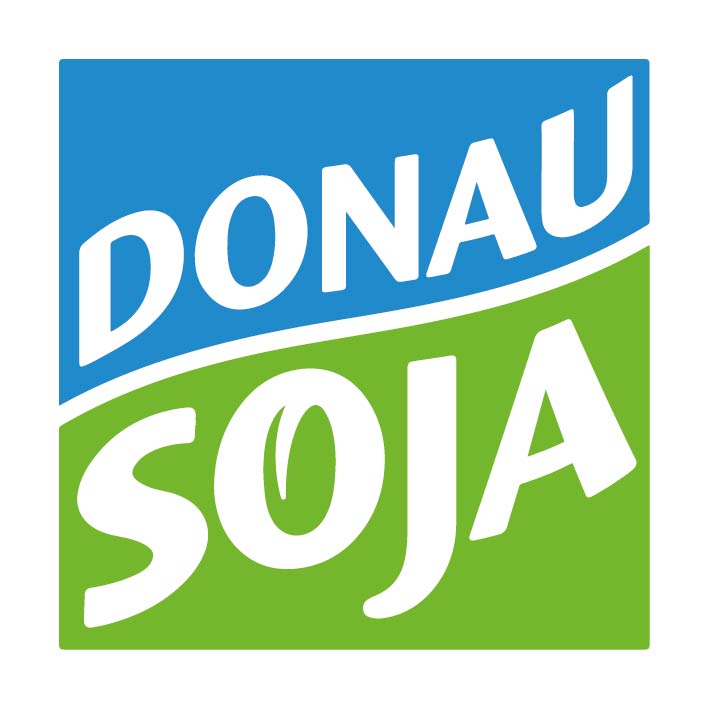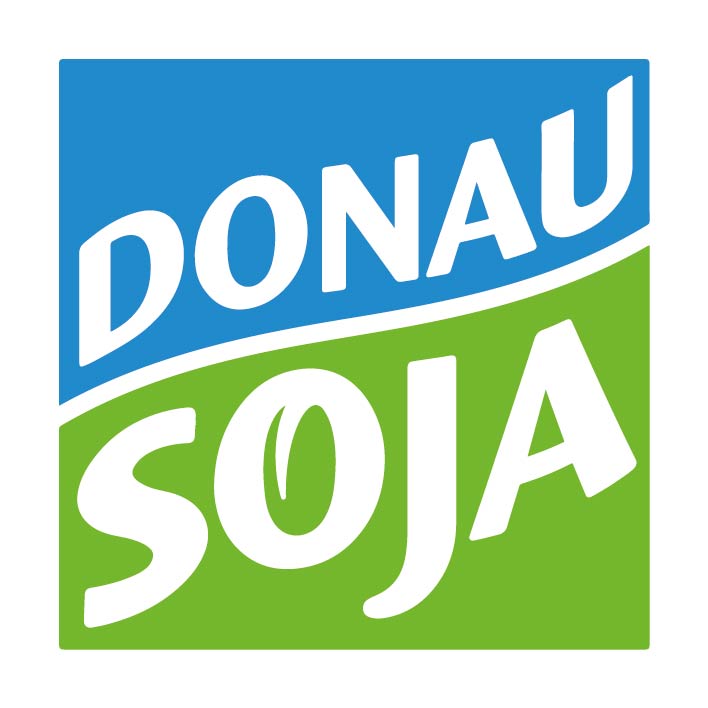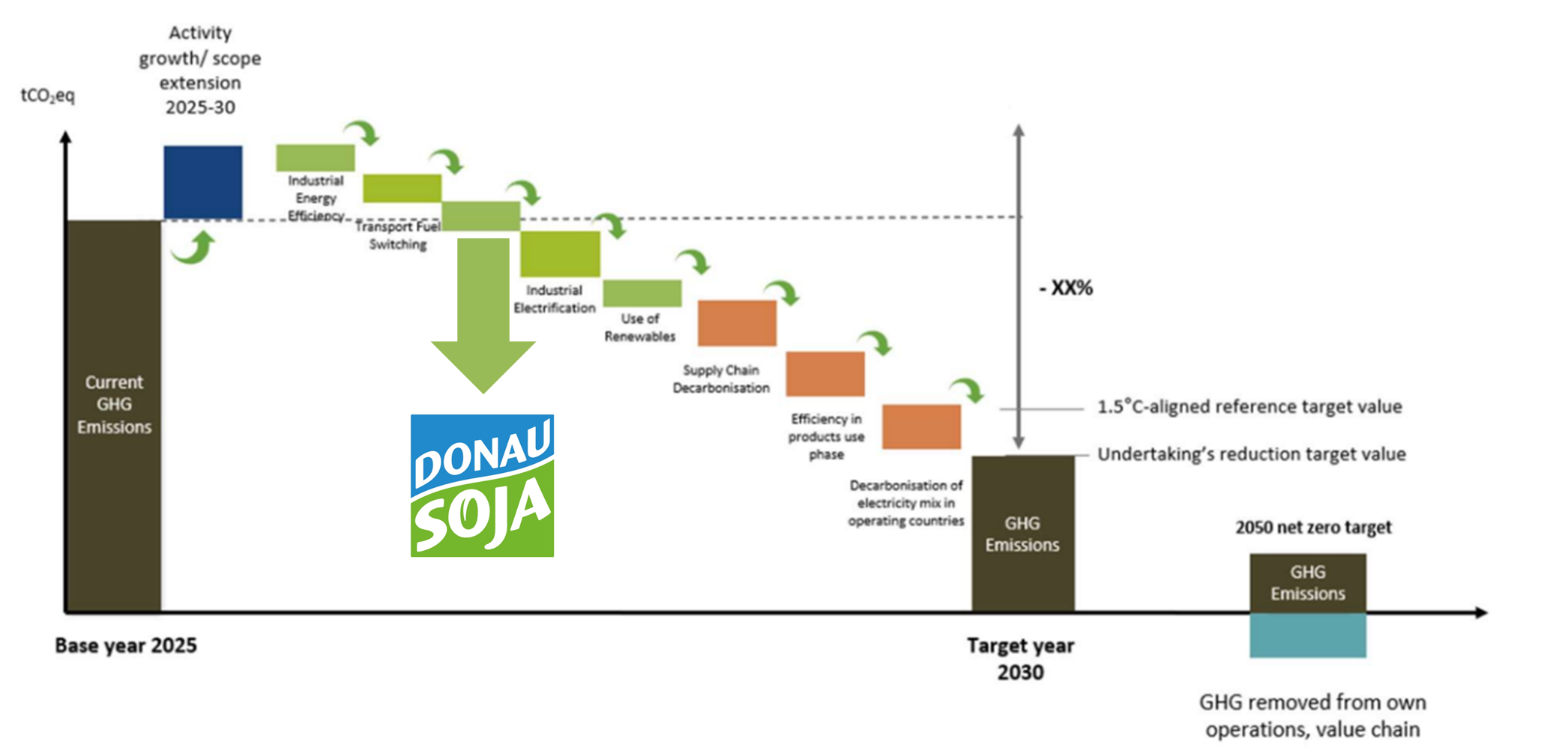By committing to Donau Soja-certified soya, companies can significantly reduce their Scope 3 emissions based on primary data
The latest Donau Soja LCA results confirm the exceptional carbon footprint of Donau Soja-certified soybeans as a powerful opportunity for substantial Corporate Carbon Footprint (CCF) reductions through certified soya. By integrating Donau Soja-certified soybeans into your supply chain, your company can significantly curb its Scope 3 emissions for the Science Based Targets initiative for Forest, Land, and Agriculture (SBTi FLAG), the Corporate Sustainability Reporting Directive (CSRD), Corporate Sustainability Due Diligence Directive (CSDDD), and more.
Exceptional CO₂ reductions with Donau Soja
Donau Soja-certified soybeans offer significant CO₂-reductions: Up to 90% lower CO₂-footprint compared to non-certified Brazilian soya and about 60% lower emissions than non-certified European soya or soya of unknown origin. The new Donau Soja data can be used independently of the cultivation country. This simplifies the calculation of product carbon footprints (PCF), soya supply chains, and CCF emissions.
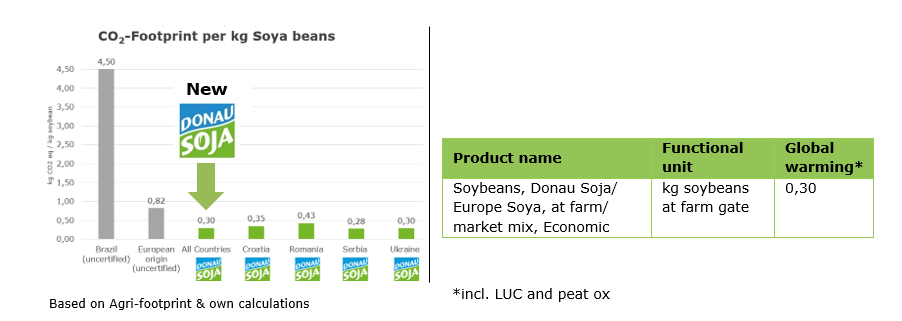
The impact of soya on Scope 3-Emissions and Corporate Carbon Footprint
Scope 3 emissions often account for more than 90% – even up to 98% – of a company’s total carbon footprint. In the retail sector and for companies producing dairy and meat products, the animal products account for ~50% of all product-related Scope 3 emissions. In turn, ~50%-65% of the carbon footprint of the animal products is determined by the feed – and here soya plays a particularly important role.
This makes certified conversion-free soya an important lever for significantly reducing the overall CO2-emissions of companies producing/selling animal products.
Utilise Donau Soja for your climate transition plan
The SBTi and CSRD demand companies reduce supply chain (Scope 3) emissions as part of their climate transition plans. Businesses must set short- and long-term targets including concrete actions withing their supply chains to achieve climate neutrality. This affects also smaller companies, as suppliers to larger firms with climate commitments. Many large corporations require their suppliers to adopt science-based climate goals.
Exemplary climate transition plan with the commitment to Donau Soja as a tool to reduce the Corporate Carbon Footprint
With science-based primary data, the Donau Soja CO2-values help companies to be able to make precise calculations about their soya footprint and reduce it.
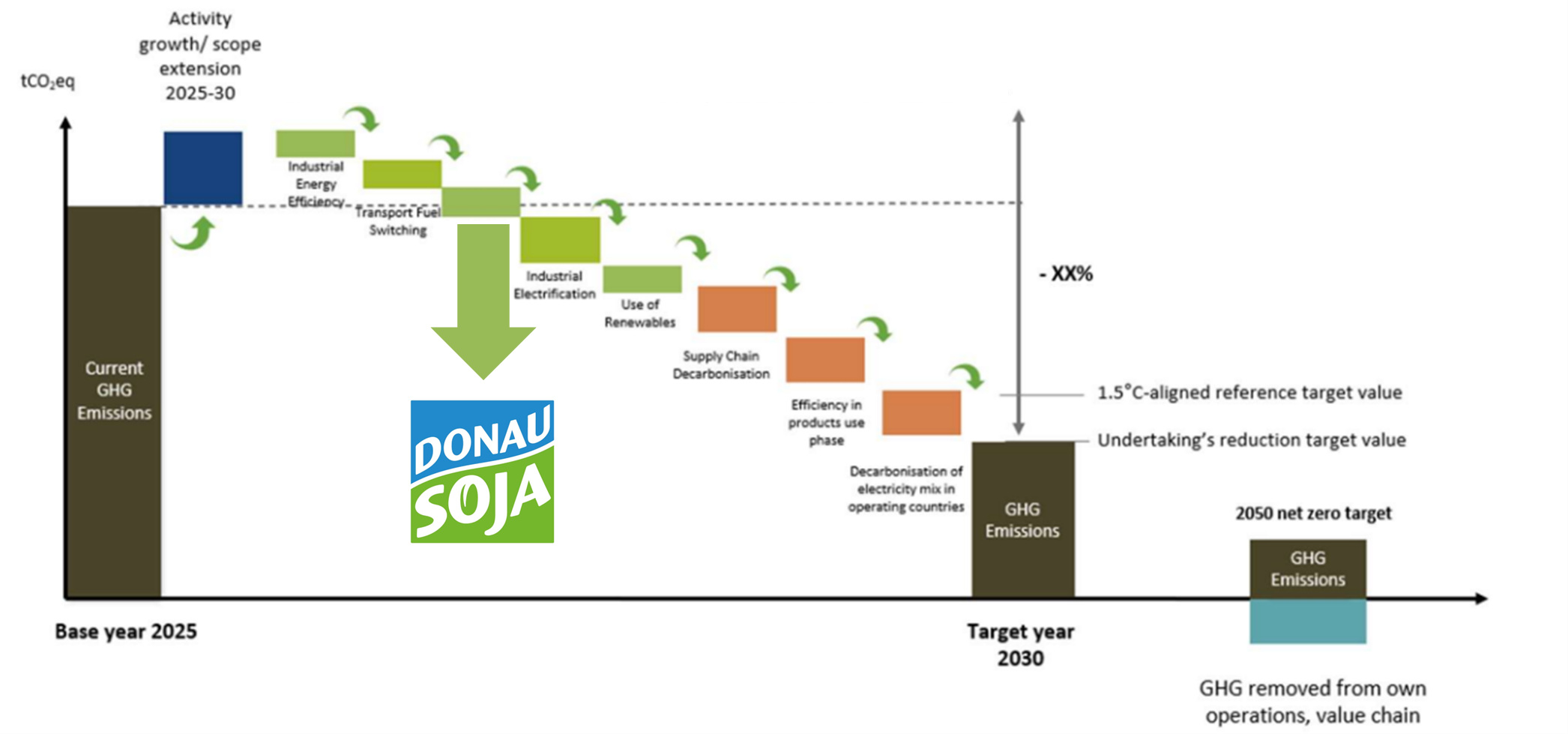
Committing to Donau Soja provides a clear path to measurable Scope 3 emission reductions. Incorporating Donau Soja into your climate strategy demonstrates commitment to deforestation- and conversion-free, traceable, non-GM soya and helps to meet regulatory and voluntary frameworks like SBTi, CSRD, and CSDDD.
The new carbon footprint values are available for download here or contact us directly. We are happy to assist in integrating Donau Soja into your business strategy and building sustainable supply chains.
Over 1 million tons of Donau Soja-certified soybeans are deforestation- and conversion-free, fully traceable to the field, and backed by robust carbon data.
Take this opportunity to make Donau Soja a key component of your climate strategy and secure a competitive edge in sustainable business practices.
About Donau Soja
Donau Soja is an independent, member-based non-profit organisation based in Vienna. Donau Soja unites over 330 members in 33 countries. The vision of Donau Soja is a sustainable, safe and European protein supply. To achieve this, Donau Soja supports, among other things, the sustainable production of soya in Europe and the development of regional value chains. The two labels Donau Soja / Europe Soya stand for non-GM soya products of controlled origin and quality from the Danube region and from Europe.
